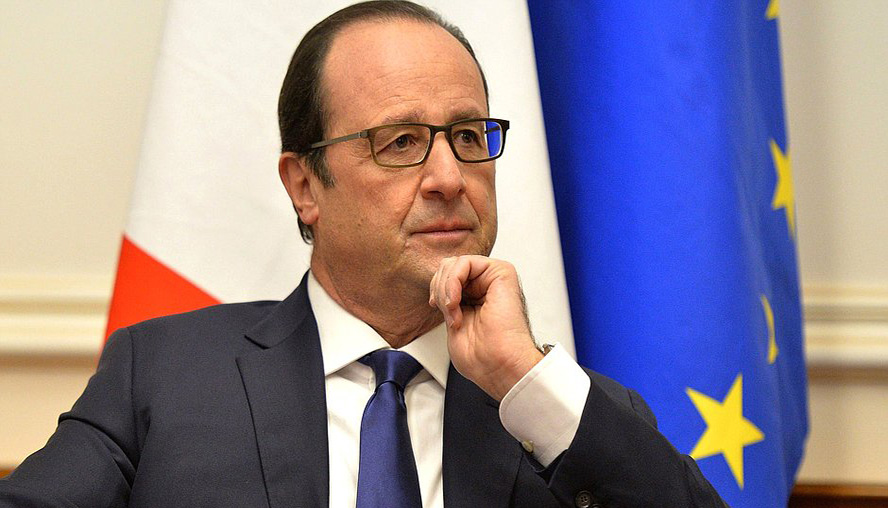
As part of his two-day state visit to Singapore and the first state visit by a sitting president of France French President Francois Hollande delivered the 40th Singapore Lecture earlier this week, speaking on the strategic partnership between France and Singapore, as well as on the benefits of globalisation and multilateralism. Singapore's Deputy Prime Minister Tharman Shanmugaratnam chaired the question-and-answer session which followed. Previously, former French President Valery Giscard d'Estaing and former French Prime Minister Raymond Barre delivered the 3rd and 7th Singapore Lectures, respectively, in 1982 and in 1986.
Here are five takeaways from Mr. Hollande's lecture and answers:
1. The geopolitical 'mood' of the day.
The French president's assessment of the geopolitical landscape in particular, on the threats of terrorism and anti-globalisation, populism, the proliferation of weapons of mass destruction, and climate change was nothing groundbreaking. And since France is one of the five permanent members on the United Nations (UN) Security Council, Mr. Hollande's remarks on a regulated globalisation based on the sovereignty of nations and the strength of international organisations, especially the UN should not be surprising too. The examples of Brexit and the election of United States President Donald Trump only came up during a question, and even so the president again emphasised a rules-based, multilateral, and regulated international world order.
Mr. Shanmugaratnam, in his welcoming address, also alluded to a rising mood to turn inwards in some parts of the world. (Listen to his comments on major global trends and shifting politics)
2. Nothing was said about the political situation in France.
Which should not be surprising, even though France's five presidential candidates faced off for the first-time in a televised debate last week. A Socialist, Mr. Hollande has grappled with terrorism and has struggled to cut unemployment, and with one of the worst approval ratings in the country's modern history, he announced in November last year that we would not seek a second term as president. In fact, centrist Emmanuel Macron and far-right leader Marine Le Pen are most likely to make it to the run-off on May 7 after the first round of voting on April 23 a stunning rebuke for the Socialists and the Republicans, the two main French political parties.
The closest reference Mr. Hollande made to the domestic situation was his concluding point, that I still have (work) to do to prevent populism, nationalism, and extremism from prevailing, including in my own country.
3. The France-Singapore economic partnership is strong.
France is Singapore's second-largest trading partner within the European Union (EU), and in the beginning Singapore's deputy prime minister mentioned the free trade agreement (FTA) between the EU and Singapore. It is the first FTA between the regional organisation and an ASEAN country, though the European Court of Justice will have to clarify whether the EU can sign and ratify the agreement. Along this tangent, Mr. Hollande added that openness and innovation were the main principles that the two countries shared, and that the 15,000 French nationals in Singapore have benefited from Singapore's embrace of globalisation.
4. Brexit will force Europe to integrate further.
In the face of increased protectionism and of the rejection of international trade and migration twin pillars of globalisation the EU can continue without the United Kingdom. The French president mentioned the strategies of differentiated integration or differentiated cooperation, which supposedly describes how individual members of the EU can group together for specific projects, even if others do not want to join in. More specifically, as Mr. Hollande spoke of the 60th anniversary of the signing of the Treaties of Rome, which established the European Economic Community, defence was highlighted as a priority. Whereas defence in Europe was thought to be within the ambit of the North Atlantic Treaty Organisation, or NATO, and the responsibility of individual states, there is now a more immediate need to secure borders and to strengthen national defence mechanisms.
5. The need for national cohesion in diverse societies.
A large part of his speech was devoted to the threats of terrorism, radicalisation, and populism, and besides the importance of eradicating the Islamic State of Iraq and Syria Mr. Hollande also urged for a rejection of hate speech in other countries. When France was struck [in November 2015, with coordinated terrorist shootings and bombings in Paris], I made sure that national cohesion was preserved because that's what terrorists want to attack, they want a division of society, he said.
This is an event coverage piece by Master in Public Policy student Kwan Jin Yao.